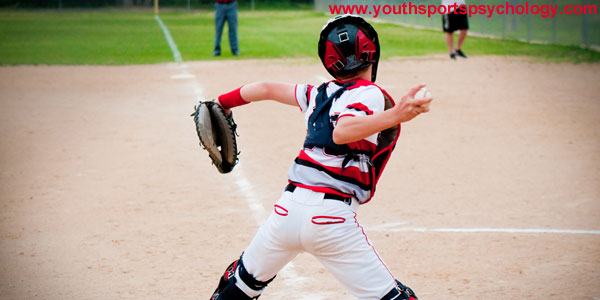Losing Provides an Opportunity for Life Lessons
Parents don’t always know what to say or do when their kids experience losses or make mistakes in sports.
Dr. Harley Rotbart, pediatrician, sports parent and author of “No Regrets Living” says parents should teach young athletes to be grateful for what they have, rather than dwelling on losses.
In an interview on our Ultimate Sports Parent podcast, Rotbart, who coached all three of his children in sports, says that it’s important to let them be upset at first. Don’t try to talk them out of being disappointed. Then, later in the day, perhaps at bedtime, talk to them about being grateful.
“Losing provides an opportunity for quality parenting time.”
Dr. Harley Rotbart
Kids need to grow up knowing that losses are part of life, and they should move on after disappointments. To teach them this, ask them to appreciate the world around them, he says.
“Tell them, ‘Isn’t it remarkable that we have been given the abilities to perform in these sports? We have the mind-body connection to kick or dribble a ball and do it without barely thinking about it.’ That’s a miraculous awareness we can teach kids.”
Parents can also tell their kids that they were able to come out of the game without being hurt. They’re able to give high fives and play again tomorrow.
“That kind of gratitude softens the disappointment they might have and gives them an awareness of the world around them,” he says.
Rotbart also focuses on the importance of connecting with children through sports. His book, “No Regrets Living,” is all about helping readers understand how they can avoid feeling regrets when they’re older–or when their kids grow up.
To ensure parents avoid feeling regretful, they should help their kids feel as if their activities are fun and that parents appreciate their efforts.
“When kids have that feeling of having had fun and experiencing the appreciation of parents for their accomplishments, that’s a “no regrets” formula for kids,” he says.
Parents can also participate in their kids’ teams as much as possible, as coaches, parent volunteers or spectators.
To keep kids focused on the positive as opposed to losses and disappointment, parents can paraphrase Albert Einstein, says Rotbart.
“Einstein said there are two ways to live: To never see a miracle or see miracles everywhere. We tried to teach our kids to see the miracles around them.”
Listen to the entire podcast with Rotbart:
Related Articles on Youth Sports:
- How to Set Standards of Excellence for Young Athletes
- How Kids Can Learn to Make the Most of Mistakes While Competing
- What Can Athletes Learn from Elite Athletes’ Mindset?
*Subscribe to The Sports Psychology Podcast on iTunes
*Subscribe to The Sports Psychology Podcast on Spotify
The Composed Sports Kid

“The Composed Sports Kid” audio and workbook digital download program for young athletes and their parents or coach helps kids cope with frustration and anger in sports. Help your sports kids learn how to manage expectations and let go of mistakes so they can keep their head in the game.
The Composed Sports Kid system is really two programs in one–one program to train parents and coaches how to help their kids practice composure, and one program that teaches young athletes–ages 6 to 13–how to improve composure, let go of mistakes quickly, have more self-acceptance, and thus enjoy sports more!

